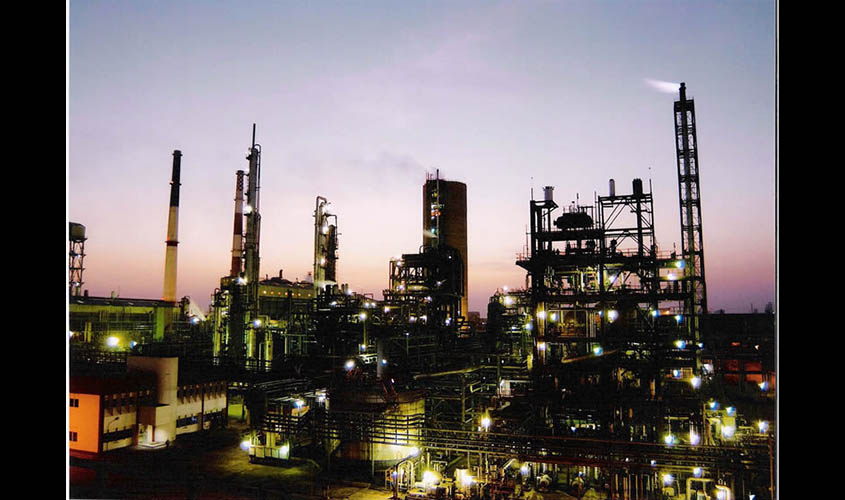 The fertilizer industry is one of the priority sectors for sustained agricultural growth in the country and for attaining self sufficiency in food grains. The industry is characterised by high dependence on government policies with respect to subsidy and control. Historically, the fertilizer sector has not been able to attract any new investments due to regulated return on investments through subsidy and price control. Further, the industry’s other woes are mounting subsidy bills and lack of clarity in policies, particularly with respect to allocation of feedstock. On the other hand, the chemical industry is one of the most diversified and growing industrial sectors of the country, covering thousands of commercial products. Imports of various chemicals are on the rise, as increased capacities are not able to cope with increasing demand. This industry occupies a pivotal position in meeting basic needs and improving quality of life for the country. The Indian chemical sector accounts for 9-10% of total exports and 8-9% of India’s total imports. Currently, per capita consumption of products of the Indian chemical industry is one-tenth of the world average, which reflects the huge potential for growth. The government’s comprehensive New Urea Policy has multiple objectives of maximising indigenous urea production, promoting energy efficiency in urea units and ensuring availability of urea to farmers with less subsidy burden on the finances of the country. As per Government of India notification, it has been made mandatory to coat 100% of urea production in the country with neem oil. The use of neem coated urea helps in improving the efficiency of the nutrients and in curtailing diversion of urea for industrial uses and acts as a pesticide. The government has also approved a natural gas pooling policy, under which all urea units would get gas at a uniform price, providing a level playing field to all the urea units. They have also set up Integrated Petroleum, Chemicals and Petrochemicals Investment Regions to promote the manufacturing of chemicals and petrochemicals.
The fertilizer industry is one of the priority sectors for sustained agricultural growth in the country and for attaining self sufficiency in food grains. The industry is characterised by high dependence on government policies with respect to subsidy and control. Historically, the fertilizer sector has not been able to attract any new investments due to regulated return on investments through subsidy and price control. Further, the industry’s other woes are mounting subsidy bills and lack of clarity in policies, particularly with respect to allocation of feedstock. On the other hand, the chemical industry is one of the most diversified and growing industrial sectors of the country, covering thousands of commercial products. Imports of various chemicals are on the rise, as increased capacities are not able to cope with increasing demand. This industry occupies a pivotal position in meeting basic needs and improving quality of life for the country. The Indian chemical sector accounts for 9-10% of total exports and 8-9% of India’s total imports. Currently, per capita consumption of products of the Indian chemical industry is one-tenth of the world average, which reflects the huge potential for growth. The government’s comprehensive New Urea Policy has multiple objectives of maximising indigenous urea production, promoting energy efficiency in urea units and ensuring availability of urea to farmers with less subsidy burden on the finances of the country. As per Government of India notification, it has been made mandatory to coat 100% of urea production in the country with neem oil. The use of neem coated urea helps in improving the efficiency of the nutrients and in curtailing diversion of urea for industrial uses and acts as a pesticide. The government has also approved a natural gas pooling policy, under which all urea units would get gas at a uniform price, providing a level playing field to all the urea units. They have also set up Integrated Petroleum, Chemicals and Petrochemicals Investment Regions to promote the manufacturing of chemicals and petrochemicals.
Gujarat Narmada Valley Fertilizers and Chemicals Limited (GNFC) is in the business of industrial chemicals, fertilizers and information technology products space. GNFC is one of the leaders in the fertilizer industry. The company is engaged in manufacturing and selling fertilizers such as urea under the brand name Narmada. The company has set up core chemical and petrochemical plants, with their chemicals enjoying a high brand value in a very niche market. The company’s turnover stood at Rs 1,054 crore for the first quarter of FY17-18, as against Rs 963 crore in the corresponding quarter of the previous year, while the net profit stood at Rs 205 crore, as against Rs 169 crore. The outlook for GNFC is quite promising, with the EPS expected to be Rs 23 for FY 18 and Rs 26 for FY 19. The GNFC stock currently quoting at Rs 270 can appreciate by 40% in the next one-year time frame.
Rajiv Kapoor is a share broker, certified mutual fund expert and MDRT insurance agent.
 The fertilizer industry is one of the priority sectors for sustained agricultural growth in the country and for attaining self sufficiency in food grains. The industry is characterised by high dependence on government policies with respect to subsidy and control. Historically, the fertilizer sector has not been able to attract any new investments due to regulated return
The fertilizer industry is one of the priority sectors for sustained agricultural growth in the country and for attaining self sufficiency in food grains. The industry is characterised by high dependence on government policies with respect to subsidy and control. Historically, the fertilizer sector has not been able to attract any new investments due to regulated return 
